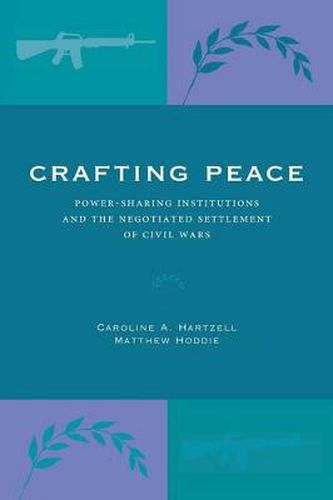Readings Newsletter
Become a Readings Member to make your shopping experience even easier.
Sign in or sign up for free!
You’re not far away from qualifying for FREE standard shipping within Australia
You’ve qualified for FREE standard shipping within Australia
The cart is loading…






The recent efforts to reach a settlement of the enduring and tragic conflict in Darfur demonstrate how important it is to understand what factors contribute most to the success of such efforts. In this book, Caroline Hartzell and Matthew Hoddie review data from all negotiated civil war settlements between 1945 and 1999 in order to identify these factors. What they find is that settlements are more likely to produce an enduring peace if they involve construction of a diversity of power-sharing and power-dividing arrangements between former adversaries. The strongest negotiated settlements prove to be those in which former rivals agree to share or divide state power across its economic, military, political, and territorial dimensions. This finding is a significant addition to the existing literature, which tends to focus more on the role that third parties play in mediating and enforcing agreements. Beyond the quantitative analyses, the authors include a chapter comparing contrasting cases of successful and unsuccessful settlements in the Philippines and Angola, respectively.
$9.00 standard shipping within Australia
FREE standard shipping within Australia for orders over $100.00
Express & International shipping calculated at checkout
The recent efforts to reach a settlement of the enduring and tragic conflict in Darfur demonstrate how important it is to understand what factors contribute most to the success of such efforts. In this book, Caroline Hartzell and Matthew Hoddie review data from all negotiated civil war settlements between 1945 and 1999 in order to identify these factors. What they find is that settlements are more likely to produce an enduring peace if they involve construction of a diversity of power-sharing and power-dividing arrangements between former adversaries. The strongest negotiated settlements prove to be those in which former rivals agree to share or divide state power across its economic, military, political, and territorial dimensions. This finding is a significant addition to the existing literature, which tends to focus more on the role that third parties play in mediating and enforcing agreements. Beyond the quantitative analyses, the authors include a chapter comparing contrasting cases of successful and unsuccessful settlements in the Philippines and Angola, respectively.